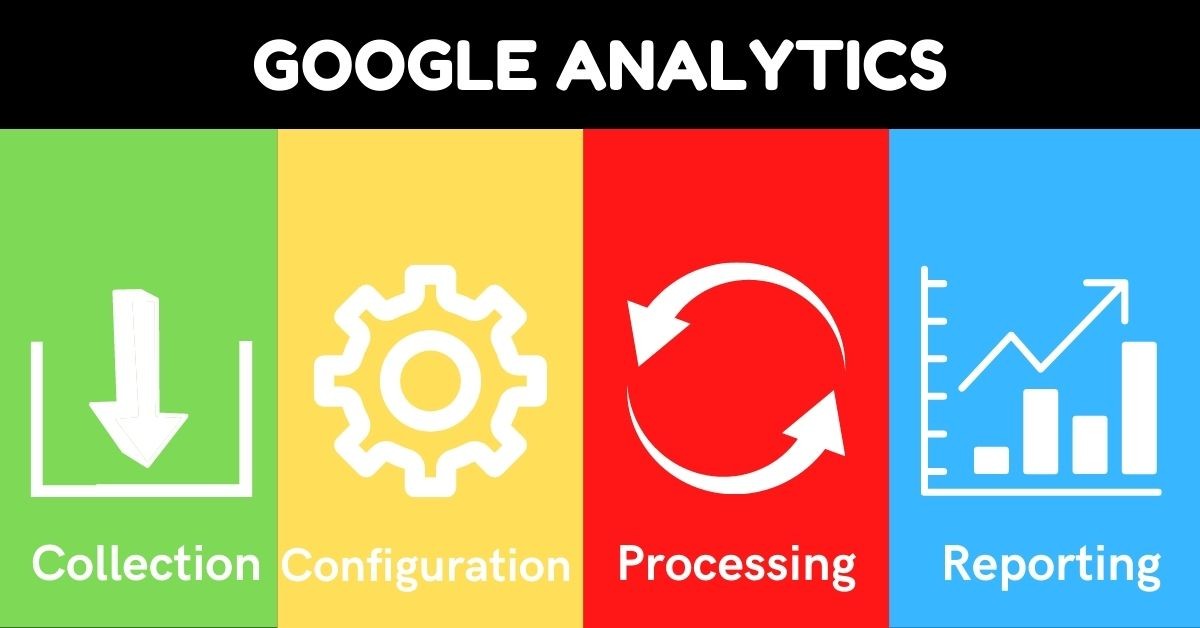Necessary Standards: Recognizing Data Collection Limits in Google Analytics
Necessary Standards: Recognizing Data Collection Limits in Google Analytics
Blog Article
Deciphering the Intricacies of Google Analytics for Improved Online Search Engine Positions
In the ever-evolving landscape of digital advertising, grasping the details of Google Analytics has actually come to be a vital ability for services intending to enhance their on the internet presence. Beyond simply tracking internet site traffic, Google Analytics holds the essential to unlocking important insights that can significantly affect online search engine rankings. By deciphering the intricacies of this effective tool, services can gain a deeper understanding of user habits, maximize their online visibility, and ultimately boost their general SEO efficiency. Understanding the subtleties of Google Analytics is not merely an issue of data analysis however a strategic endeavor that can propel a website to new heights in the competitive on the internet ball.

Understanding Google Analytics Terminology
Comprehending the basic Google Analytics terms is important for getting actionable understandings into site performance. Among the key terms to understand is "sessions." A session represents a single see to a website, encompassing all communications within a specific duration. Within a session, various activities happen, such as page purchases, occasions, and sights, providing a comprehensive sight of customer behavior.
An additional important term is "bounce rate." This metric shows the portion of single-page gos to where users leave a website without connecting better. A high bounce rate might signify problems with internet site use or web content importance.
Additionally, "conversion price" is an important metric to track. It gauges the percent of customers that complete a preferred action, such as signing or making a purchase up for a newsletter. what data does google analytics prohibit collecting. Recognizing these terms allows internet site proprietors to review efficiency properly, identify areas for improvement, and make notified choices to enhance individual experience and drive business development
Navigating the Google Analytics Dashboard
Browsing the Google Analytics Dashboard offers web site owners with valuable understandings into site visitor actions and site performance. The dashboard is the main center where users can access a vast array of information and metrics associated with their website. Upon logging in, individuals are welcomed with an overview that highlights key efficiency indications such as the variety of sessions, customers, bounce price, and typical session period.
Moving via the dashboard, customers can dig deeper into specific reports such as audience demographics, procurement channels, and actions flow. These records use comprehensive information on that is going to the website, how they are locating it, and what activities they are taking as soon as they come down on a web page. Furthermore, the dashboard enables customers to establish custom records and control panels customized to their details requirements and objectives.
Analyzing Website Traffic and Individual Behavior
Upon exploring the Google Analytics control panel and getting insights right into visitor behavior and internet site efficiency, website owners can currently transform their attention to analyzing web site traffic and user behavior. This important action involves delving deeper right into the data offered by Google Analytics to understand how customers interact with the website. By checking out metrics such as page sights, session period, bounce price, and user demographics, web site owners can acquire valuable insights right into the efficiency of their material and design.
Evaluating website traffic allows internet site proprietors to determine popular web pages, referral resources, and patterns over time. Comprehending customer actions, on the other hand, includes taking a look at exactly how site visitors navigate the site, which pages they frequent, and where they go down off. This details can help optimize the individual experience, address improve conversion prices, and tailor material to far better satisfy the requirements of the target audience.
Establishing Objectives and Conversions
When configuring Google Analytics for an internet site, developing goals and tracking conversions is vital for determining the effectiveness of electronic marketing efforts and maximizing customer engagement. Goals in Google Analytics are particular activities that you want customers to handle your website, such as purchasing, registering for an e-newsletter, or completing a get in touch with form. By establishing objectives, you can track essential interactions and review the success of your site in driving conversions.
To establish up goals in Google Analytics, browse to the Admin section of your account and choose the Goals tab. From there, you can create custom goals based upon destination pages, time invested in site, web pages per session, or event triggers. By specifying these goals, you can gain important insights right into individual behavior, determine areas for enhancement, and make data-driven choices to improve your site's efficiency.
Tracking conversions enables you to understand just how efficiently your internet site is satisfying its purposes and aids you refine your electronic advertising and marketing strategies for better results. By monitoring conversions, you can identify which channels and campaigns are driving one of the most valuable web traffic and change your methods accordingly to maximize ROI.
Making Use Of Records for Search Engine Optimization Insights

One of the vital records to concentrate on is the organic search web traffic record (what data does google analytics prohibit collecting). This record highlights the search phrases that are driving organic traffic to the website, permitting search engine optimization specialists to recognize high-performing key words and maximize material around them. In addition, the landing web pages report can supply insights into which web pages are attracting one of the most organic traffic, allowing web site owners to enhance those web pages additionally
Additionally, assessing customer behavior with records such as the bounce rate, average session duration, and web pages useful link per session can offer important insights right into the efficiency of internet site content and user experience. By leveraging these reports, organizations can make data-driven choices to improve their SEO techniques and enhance their on the internet exposure.
Conclusion
Finally, understanding Google Analytics is vital for boosting online search engine rankings. By comprehending its terminology, navigating the control panel, assessing user actions, establishing objectives, and making use of reports, organizations can acquire useful insights to maximize their sites for better visibility and performance. Executing the expertise acquired from Google Analytics can bring about enhanced SEO approaches and inevitably, enhanced online success.
Browsing the Google Analytics Dashboard gives site owners with useful Going Here insights right into site visitor habits and site efficiency.Upon checking out the Google Analytics control panel and getting understandings into visitor actions and web site efficiency, web site owners can now transform their attention to analyzing internet site web traffic and customer habits.Examining website traffic allows internet site proprietors to identify preferred pages, reference sources, and trends over time.When configuring Google Analytics for a web site, developing goals and tracking conversions is necessary for measuring the performance of electronic marketing initiatives and maximizing user interaction. Objectives in Google Analytics are certain activities that you desire individuals to take on your website, such as making an acquisition, signing up for an e-newsletter, or completing a contact kind.
Report this page